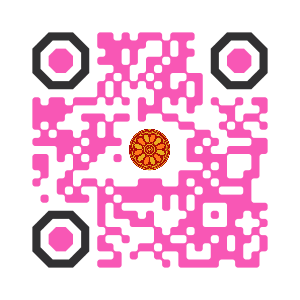
:: International Transaction Journal of Engineering, Management, & Applied Sciences & Technologies
http://TuEngr.com

ISSN 2228-9860
eISSN 1906-9642
CODEN: ITJEA8
FEATURE PEER-REVIEWED ARTICLE
Vol.11(9) (2020) |
-
EXPERIENCING GNSS ATLAS L-BAND SERVICE IN THAILAND
 Seksun Pluemsawasd, Kritsada Anantakarn (Department of Civil Engineering, Faculty of Engineering and Architecture, Uthenthawai Campus. Rajamongala University of Technology Tawan-ok, THAILAND ),
Seksun Pluemsawasd, Kritsada Anantakarn (Department of Civil Engineering, Faculty of Engineering and Architecture, Uthenthawai Campus. Rajamongala University of Technology Tawan-ok, THAILAND ),
Rerkchai Fooprateepsiri (Department of Information Technology, Faculty of Business and Information Technology, Rajamongala University of Technology Tawan-ok, THAILAND ),
Wunchock Kroehong (Department of Civil Engineering, Faculty of Engineering and Architecture, Uthenthawai Campus. Rajamongala University of Technology Tawan-ok, THAILAND ),
Boonsap Witchayangkoon (Department of Civil Engineering, Thammasat School of Engineering, Thammasat University, THAILAND ).
Disciplinary: Multidisciplinary (Geodetic/Navigation Engineering, Civil Engineering, Information Technology).
DOI: 10.14456/ITJEMAST.2020.165
Keywords: Land survey; GPS; GNSS, RTK; internet; CORS; L-band correction; L-band differential correction service; AUSPOS.
AbstractMany civil engineering and construction tasks require highly accurate land surveying information. The Global Navigation Satellite System (GNSS) provides positioning locations for land surveying and navigation technology. To achieve high accuracy, Real-Time Kinematic (RTK) differential correction method is mainly applied for Differential GNSS measurement. The Royal Thai Survey Department (RTSD) has established many local Continuously Operating Reference Stations (CORS). Information from CORS can be used for RTK differential correction via mobile Internet connection. However, many rural remote areas in Thailand such as forest, agricultural lands have no GSM mobile signal and Internet. The alternative solution is to use the GNSS L-band global correction service that is connected to a satellite communication system. Such system uses precise point positioning (PPP) technology to give corrected data for improving positioning measurement accuracy without internet connection requirement. This study employs is GNSS L-Band Global correction service for many test sites in Thailand and the results are compared with static. The user receiver accessing to GPS, GLONASS and BEIDU satellites, the static comparison study of Atlas L-Band correction and AUSPOS confirms centimeters horizontal accuracy and decimeters height accuracy.
Paper ID: 11A9C
Other issues:
Vol.11(11)(2020)
Vol.11(10)(2020)
Vol.11(8)(2020)
Vol.11(7)(2020)
Vol.11(6)(2020)
Vol.11(5)(2020)
Vol.11(4)(2020)
Vol.11(3)(2020)
Vol.11(2)(2020)
Vol.11(1)(2020)
Archives
Call-for-Papers
Call-for-Scientific PapersCall-for-Research Papers: ITJEMAST invites you to submit high quality papers for full peer-review and possible publication in areas pertaining engineering, science, management and technology, especially interdisciplinary/cross-disciplinary/multidisciplinary subjects.
To publish your work in the next available issue, your manuscripts together with copyright transfer document signed by all authors can be submitted via email to Editor @ TuEngr.com (no space between). (please see all detail from Instructions for Authors)
Publication and peer-reviewed process:
After the peer-review process (4-10 weeks), articles will be on-line published in the available next issue. However, the International Transaction Journal of Engineering, Management, & Applied Sciences & Technologies cannot guarantee the exact publication time as the process may take longer time, subject to peer-review approval and adjustment of the submitted articles.